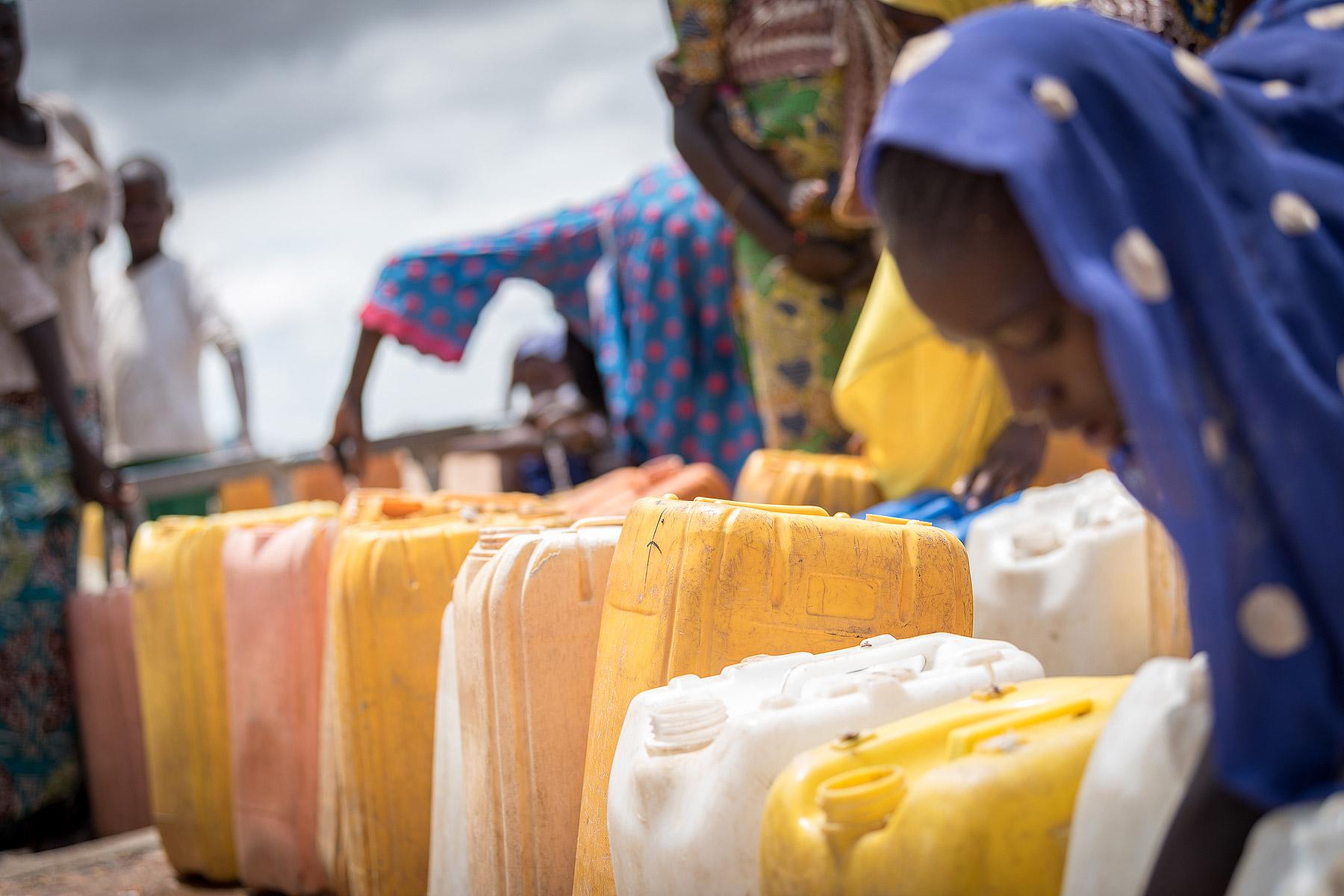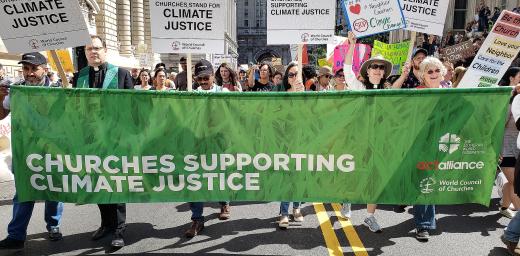Protecting the most vulnerable while working for climate justice

Women queue to fill up their jerry cans with drinking water at one of the tapstands in Minawao camp in the Far North region of Cameroon. The camp hosts some 58,000 refugees from North East Nigeria, and receive support from the Lutheran World Federation, together with a range of partners. All photo: LWF/Albin HillertÂ
New study introduces mutuality, solidarity, accountability and financial transparency as principles for climate justice
(LWI) How is it possible to take into account the well-being and protection of creation, and of the poorest and most vulnerable people in developing countries, as we address climate change, asks a new study from The Lutheran World Federation (LWF), Bread for the World, ACT Alliance, and the World Council of Churches.
A known injustice of climate change is that the world’s poorest countries, which have done the least to cause the climate crisis, are often impacted the hardest. This can cause further vulnerability, poverty and debt, and mitigating this is a priority when we address climate change.





